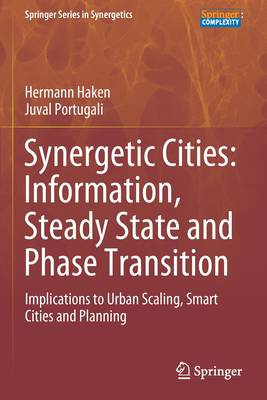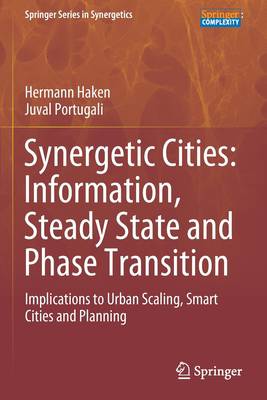
- Retrait gratuit dans votre magasin Club
- 7.000.000 titres dans notre catalogue
- Payer en toute sécurité
- Toujours un magasin près de chez vous
- Retrait gratuit dans votre magasin Club
- 7.000.0000 titres dans notre catalogue
- Payer en toute sécurité
- Toujours un magasin près de chez vous
Synergetic Cities: Information, Steady State and Phase Transition
Implications to Urban Scaling, Smart Cities and Planning
Hermann Haken, Juval Portugali
179,45 €
+ 358 points
Format
Description
The book offers a novel approach to the study of the complex dynamics of cities. It is based on (1) Synergetics as a science of cooperation and selforganization, (2) information theory including semantic and pragmatic aspects, and optimization principles, (3) a theory of steady state maintenance, and of (4) phase transition, i.e. qualitative changes of structure or behavior.
From this novel theoretical vantage point, the book addresses particularly three issues that stand at the core of current discourse on cities: Urban Scaling, Smart Cities and City Planning.
Spécifications
Parties prenantes
- Auteur(s) :
- Editeur:
Contenu
- Nombre de pages :
- 260
- Langue:
- Anglais
- Collection :
Caractéristiques
- EAN:
- 9783030634599
- Date de parution :
- 13-02-22
- Format:
- Livre broché
- Format numérique:
- Trade paperback (VS)
- Dimensions :
- 156 mm x 234 mm
- Poids :
- 385 g

Les avis
Nous publions uniquement les avis qui respectent les conditions requises. Consultez nos conditions pour les avis.






